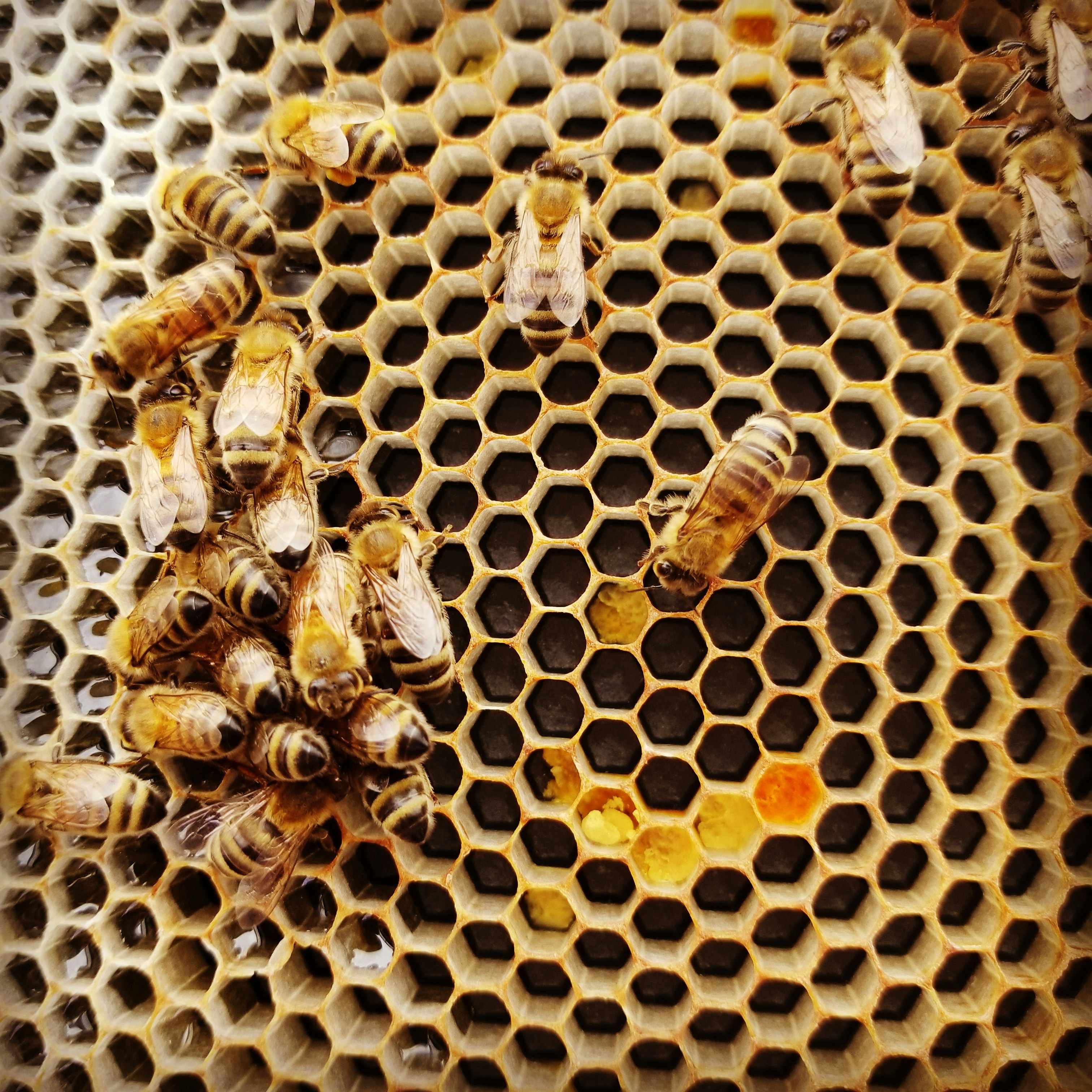Wisdom traditions teach us to redirect our focus from narrow personal concerns toward broader universal ones. Although this ethic represents a peak of human understanding, isn’t a notion that demands rational thought; it seems to arise naturally when groups of animals become complex.
Look at the so-called eusocial species, which include bees, ants, termites, some crustaceans, and even some mammals. In these societies, individual members readily sacrifice themselves in order to protect the hive or colony.
When honeybees sting, their barb remains attached to a contracting vesicle. This organ continues pumping poison into the enemy’s body after the insect has flown off. But the vesicle’s release is accomplished via evisceration; with its body cavity torn open, the bee soon dies. The worker is doomed, but the hive’s chance of surviving increases.
Soldier castes protect ant colonies. Individual soldiers never hesitate to fight, no matter the cost to their own life or limb; they act in service of group welfare, not individual safety.
In a eusocial colony, only a single queen and a handful of male drones produce sex cells. None of the other individuals (such as soldiers or workers) can reproduce. Colonies with this reproductive structure are best viewed as super-organisms. Each bee or ant functions a bit like a single cell in a human body. In our bodies, only a small population of cells within the gonads generate sperm or eggs; all the other cells serve to keep us alive long enough to launch the next generation.
We can compare the bee’s voluntary evisceration with the way some immune cells burst open to release toxins when a body region is infected. The individual (bee or cell) dies, but the collective (hive or body) survives. Because multi-celled organisms like ourselves are so complex and integrated, we don’t think of them as eusocial colonies, but similar principles are at play.
Why describe eusociality? Because there’s an eerie similarity between the rules that govern super-organisms and the lessons of spiritual practice. To bring us back to where we started: wisdom paths encourage us to value common welfare more than individual gain.
In fact, the message of universality doesn’t arise only within ancient spiritual traditions; it can bubble up today in any deeply centered mind. It is not uncommon for practiced meditators to experience dissolution of the barriers that seem to isolate the individual from other people and the cosmos at large. When this happens, we look in another’s eyes and know that the consciousness with which we gaze in is the same as that which shines out. There is no meaningful separation, just a bit of spatial distance between the structures that support our mutual awareness. Seeing such shared consciousness makes placing collective good before individual preference seem like a no-brainer.
Explicit meditative contact with this common ground of awareness isn’t necessary. Acts of heroism are performed every day without any sense of mystical interconnection, but simply through feelings of loyalty, honor, and love.
Whenever we treat our own welfare as less important than common interest, we adopt a behavioral response that seems to emerge naturally when communities grow complex. This quality of conduct has arisen multiple times; in this essay we’ve already seen it operative in the cells that comprise organisms and the bees that comprise hives. Perhaps the fact that human wisdom traditions encourage such behavior is an example of convergent evolution. Regardless of their composition (whether of cells, insects, or personalities), complex communities face similar problems and thus evolve similar solutions.
Would it surprise us to learn that complex interdependent communities can persist over evolutionary time only when individuals promote such persistence rather than their own agendas? After all, isn’t cancer lethal precisely because mutated cells reproduce without regard for the whole organism?
These days, most reasonable people understand that unbridled individualism will eventually lead to civilization’s ruin. There may be a few hold-outs who honestly believe that unfettered competition will generate the best possible society; however, most people who promote that opinion are financially placed to benefit from it. Their motives seem more about personal enrichment than common welfare.
Eusociality doesn’t demand that we sacrifice for others at all times. Circumstances must be considered carefully. If we have young children who depend on us, accepting a pay cut for the good of our corporate employer is not–on balance–a wise and compassionate act. In such a situation, wisdom might demand we raise a ruckus.
We cannot write rules to be followed in all cases. In other words, we can’t legislate social evolution. However, we can offer guidelines, and most will sound something like this: always look for the greatest good for the greatest number of beings (including non-human ones). Insist on personal welfare only when necessary to protect others, or–at a minimum–when it doesn’t harm anyone.
Such high standards are easier to state than to follow, which is why saints are rare. But if we want civilization to continue, we’d do well to champion those who sacrifice their own interests to advance collective wellbeing. In other words, we should pay attention to what eusocial species tell us about sustainable societies.

